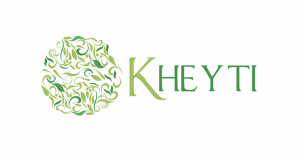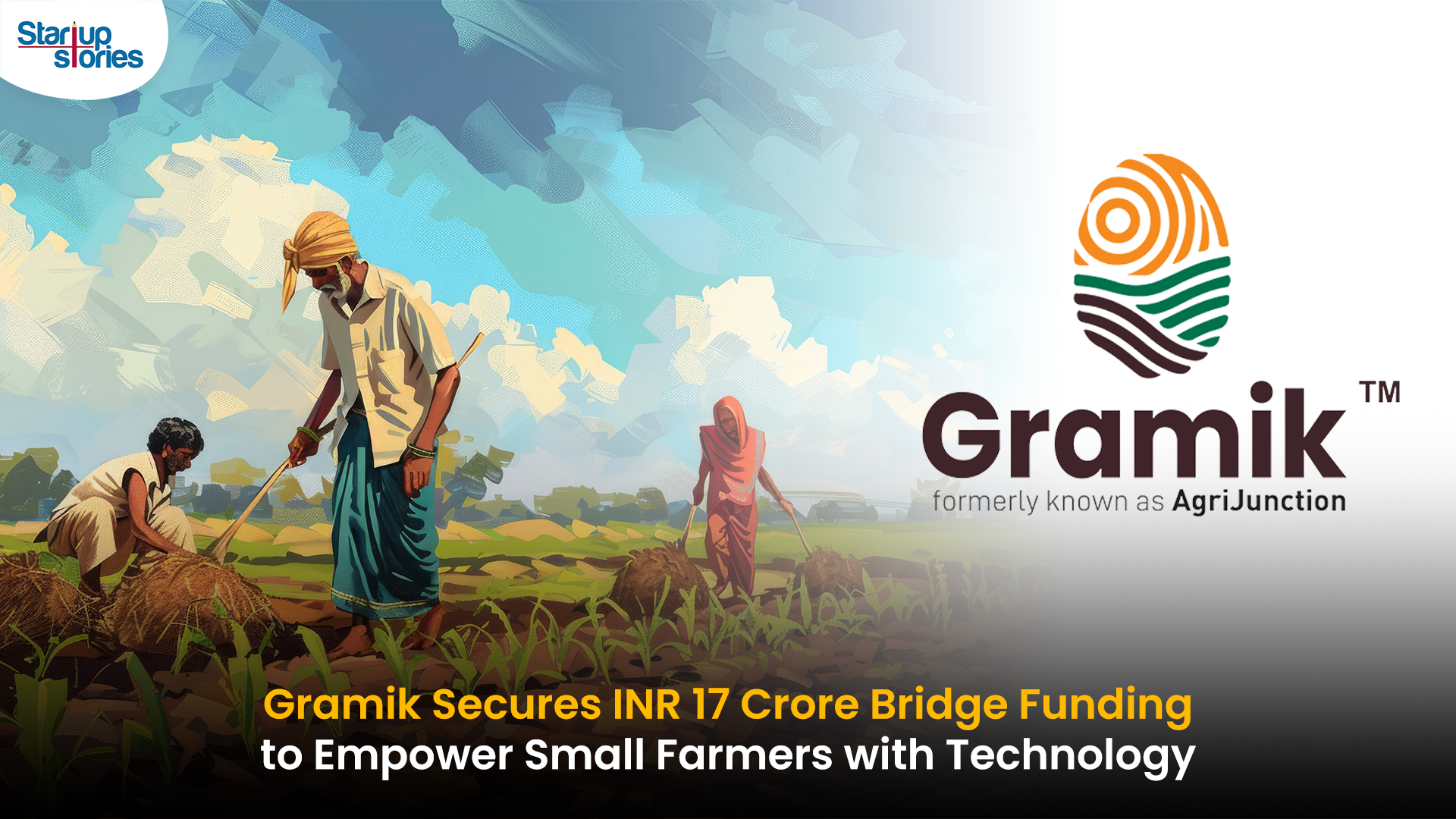Funding
Indian Startup Kheyti Wins 27 Lakh Award In Israel

Kheyti, an Indian startup based in Hyderabad, has won a prestigious award and a cash prize of $ 42,000 in Israel for developing an affordable modular greenhouse. The aim of the modular greenhouse is to provide farmers with a steady and dependable income. Kheyti, along with Sukriti which developed a smart toilet cabin employing hygiene maintenance systems to enhance user experience in sanitation, were two of the top ten startup finalists in the MassChallenge Israel contest. The contest saw a participation of over 500 companies from 40 different countries.

The agricultural startup Kheyti, provides technology solutions for small farmers using low cost farming solutions to help the farmers increase yield and predictability of produce. After a rigorous three month process, they shared the honor with an Israeli startup as the “diamond winners” of this year’s contest. Both startups were awarded a cash prize of $ 42,850. Speaking about the startup’s success, the Indian Ambassador to Israel, Pavan Kapoor said he hopes Kheyti’s win will motivate and encourage more Indian startups to innovate and work in the social sector and lead to a further collaboration between India and Israel.
Kheyti was started by Sathya Raghu V. Mokkapati and Kaushik K. The startup has 3 other members with strong entrepreneurial backgrounds who design and implement affordable and end to end farming solutions that help farmers increase yield and predictability of produce. The aim of the startup is to offer farmers a seamless path to increase their income by using innovative technological solutions. The team developed a modular greenhouse called the ‘greenhouse-in-a-box’ with full stack services that uses 90% less water and grows seven times more food while protecting the farmers’ crops from wind, rain, hail, heat and pests.
Since its inception, the startup has also won the People’s Choice Award at the Wharton India Startup Competition 2015 in Mumbai and bagged a prize money of $ 5000. Their greenhouse in a box solution was developed over the past eight months and according to co founder Satya Raghu V. Mokkapati, proof of the concept will be ready by the end of this financial year. The startup also plans to develop a model that suits multiple geographies and protocols to meet the farmer’s needs, over the next 2 to 3 years.
The MassChallenge Israel is a startup friendly accelerator that selects startups from multiple countries and works across a range of industries including future mobility and visual technologies, among others. This week, the company awarded $ 143,000 zero equity cash prizes to four of the highest impact startups from its 2017 cohort. The cash prize winners will have the opportunity to take part in the first MassChallenge Israel US Trek in November, which is a curated business trip to the innovation ecosystems in Boston and New York.
Funding
Dazzl Raises $3.2M Seed Funding Led by OYO’s Ritesh Agarwal for AI Skincare Expansion

Bengaluru, January 13, 2026 Dazzl, the D2C beauty startup revolutionizing AI personalized skincare India, secured $3.2 million in seed funding led by OYO founder Ritesh Agarwal’s venture arm. Co-investors include Snapdeal’s Rohit Bansal and Fireside Ventures, valuing Dazzl at $15 million post-money. Founded in 2024 by IIT alumni Priya Singh and Arjun Mehta, the app uses smartphone scans for custom serums, boasting 50,000+ users and ₹5 crore ARR amid India’s $25 billion beauty market surge.
Ritesh Agarwal praised Dazzl’s tech: “Personalization is beauty’s future, like OYO’s guest model.” Funds target R&D for 100+ skin profiles, Gujarat manufacturing under PLI, Instagram/Nykaa campaigns, and 50 hires. In a 20% YoY growing sector (Redseer 2025), Dazzl edges Mamaearth and Plum with 95% AI precision, 90% natural formulas, ₹499 kits, 65% retention (vs. 40% avg), and viral TikTok traction in 10 cities.
D2C beauty startup Dazzl tackles regulations via FSSAI compliance, eyeing $10B e-commerce beauty by 2028 and MENA exports. Q2 haircare launches and Series A loom, with Agarwal’s backing signaling unicorn potential for sustainable beauty products India. Dazzl blends AI with clean beauty for 500M+ consumers.
Funding
Yali Capital Makes History with ₹893 Crore Deeptech Fund to Power Indian Innovation

Bangalore’s Yali Capital has closed its first deeptech-focused fund, raising a substantial ₹893 crore (about $104 million) and surpassing its initial ₹500 crore target. This major fundraising milestone highlights the growing appeal and investor confidence in India’s deeptech landscape, fueling innovation in pivotal sectors like semiconductors, artificial intelligence, robotics, aerospace, genomics, and smart manufacturing. The fund cements Yali Capital’s position as a key player driving progress in India’s burgeoning tech ecosystem.
Strategically, Yali Capital’s fund targets both early-stage (Seed, Series A) and later-stage (Series D and beyond) startups. Its diverse roster of Limited Partners (LPs) includes prominent corporations such as Infosys, Qualcomm Ventures, and Tata AIG, alongside government-backed organizations like the DPIIT Fund of Funds for Startups and the Self-Reliant India Fund. With heavyweight backers like Kris Gopalakrishnan (Infosys co-founder), Gopal Srinivasan (TVS Capital), and Utpal Sheth (RARE Enterprises), Yali Capital ensures robust strategic support. The firm’s dual structure—a SEBI-registered Alternative Investment Fund (AIF) and a GIFT City-based feeder vehicle—enables global investor participation, guided by tech luminary Lip-Bu Tan and managing partner Ganapathy Subramaniam.
Already, Yali Capital has invested in five breakthrough startups, including C2I Semiconductor, 4baseCare, and Perceptyne, focusing on chip design and AI. By devoting two-thirds of its fund to early-stage companies, Yali Capital underscores its commitment to nurturing next-generation Indian deeptech founders. This fundraising success aligns with a nationwide trend of surging investments in advanced technology and positions Yali Capital at the forefront of India’s drive toward self-reliance and global tech leadership.
Funding
Agritech Startup Gramik Raises INR 17 Crore to Expand Rural Commerce in India

- Gramik, a Lucknow-based agritech startup, has secured INR 17 crore in a bridge funding round ahead of its upcoming INR 56 crore Series A raise.
- The funding round included investments via Optionally Convertible Debentures (OCDs) and Compulsorily Convertible Debentures (CCDs).
- Key investors include Sammaan Global Ventures, Money Creeper Investment, and prominent angels such as Balram Yadav (MD & CEO, Godrej Agrovet), Gev Aryaton, Irfan Alam, Nikhil Bhagat, and Salvia Siddiqui.
Gramik’s Unique Peer Commerce Model
- Founded in 2021 by Raj Yadav, Gramik empowers over 120 million small and marginal farmers in India through a technology-driven rural commerce platform.
- The startup operates a dual-channel distribution network using Village-Level Entrepreneurs (VLEs) and rural retailers to deliver high-quality agri-inputs to remote areas.
- Gramik’s full-stack platform offers demand aggregation, logistics, embedded credit, and agronomy services, ensuring last-mile delivery and support for farmers.
Expansion Plans and Future Growth
- Gramik currently operates in 12 districts, with 1,200+ active VLEs and 250+ rural retail partners, and plans to expand to 3,000 VLEs and reach 1 million+ farmers across Uttar Pradesh, Maharashtra, and Jammu.
- The new funds will be used to expand Gramik’s private-label products, enhance agronomy-led farmer engagement, and scale operations in key states.
- With a strong focus on supply chain efficiency, technology, and farmer advisory services, Gramik aims to become a leader in India’s $50 billion agri-input and rural commerce market.
- Backed by previous seed funding of over INR 25 crore, Gramik is set to drive innovation and inclusive growth for rural communities.













Kuwin
November 5, 2025 at 9:13 pm
kuwin sở hữu kho game đa dạng từ slot đến trò chơi bài đổi thưởng, mang đến cho bạn những giây phút giải trí tuyệt vời.
GO88
November 7, 2025 at 2:25 pm
Tham gia cộng đồng game thủ tại Go88 để trải nghiệm các trò chơi bài, poker phổ biến nhất hiện nay.
谷歌站群
November 8, 2025 at 4:22 pm
专业构建与管理谷歌站群网络,助力品牌实现全域流量的强势增长。谷歌站群
MM88
November 10, 2025 at 1:44 am
Với giao diện mượt mà và ưu đãi hấp dẫn, MM88 là lựa chọn lý tưởng cho các tín đồ giải trí trực tuyến.
谷歌外推
November 14, 2025 at 1:09 am
采用高效谷歌外推策略,快速提升网站在搜索引擎中的可见性与权重。谷歌外推